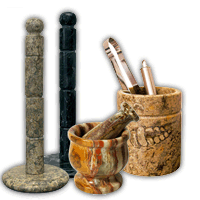
RECORDER REPORT
LAHORE: Marble and granite industry of Pakistan can be transformed into a cutting-edge stone industry by adopting Chinese quarrying techniques.
Pak China Joint Chamber of Commerce and Industry (PCJCCI) President S M Naveed stated this at a meeting with PCJCCI China affairs Wang Zihai here Wednesday.
S M Naveed said that industrial parks would bring the cost-effective cutting, blasting and finishing technology in Pakistan that would enhance the competitive edge of the industry. All provinces in Pakistan have huge deposits of ornamental stones. Balochistan has rich confirmed deposits of marble and granite in Khuzdar, Loralai, Lasbela and Chaghi districts, whereas, in Khyber Pakhtunkhwa, Malakand, Mardan, Hazara, Peshawar, and Kohat are the high-potential areas where quarrying and mining are already taking place, he added.
He suggested strengthening Pakistan Stone Development Company to fill in the missing chains in marble industry.
He suggested strengthening Pakistan Stone Development Company to fill in the missing chains in marble industry.
The extraction in Pakistan mainly comprises boring of holes in the bedrock, filled with explosives to blast the block, resulting not only in high wastage but also in smaller sized stone, substantially reducing the price, he said.
The standard quarry wastage in the world is taken at 50 percent of the gross produce; however, in Pakistan, this reaches up to 73 percent, he said.
According to him, wastage can be avoided by using latest wire-cutting technique and equipment, thus bright prospects of setting up joint ventures in the marble sector exist in Pakistan.





